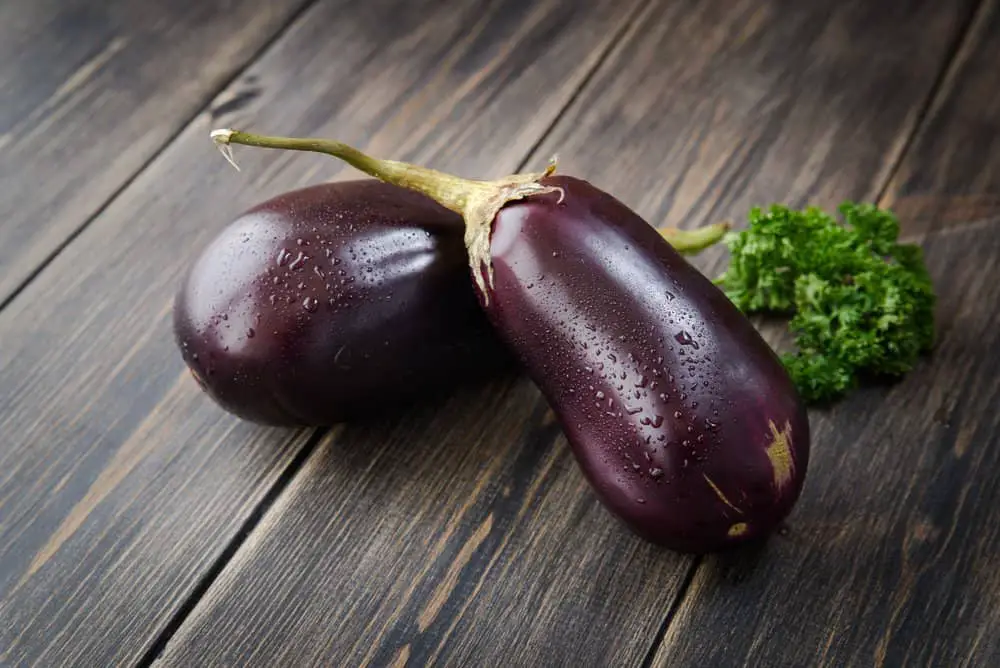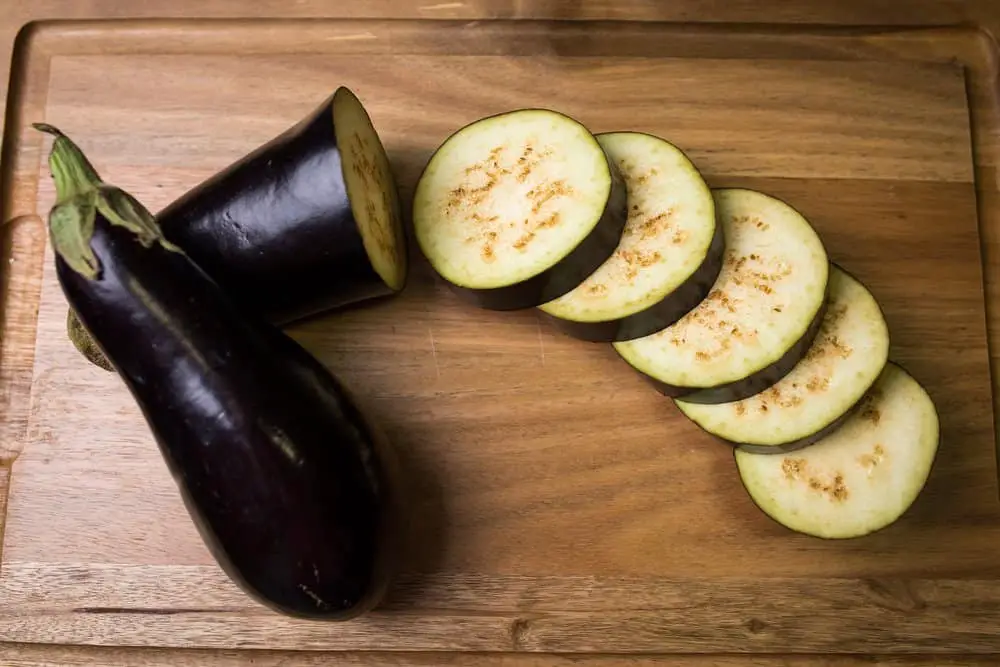Don’t stroll past those eggplants just yet; you might be missing out on some very healthy nutrient giving vegetables. It may look odd and you are probably asking your self, what does eggplant taste like?
Eggplants are not our everyday cooking ingredients like spinach or cheese at least for me, but I have grown to use them a lot more frequently, this is because aside from its nutrients, it is a good substitute for many other vegetables.
There are so many ways you can eat eggplants, and you can also incorporate eggplants into other dishes so that they can be more appetizing and more nutritious for your kids and family.
If you ever wondered what eggplants are all about and the best ways to use them, read on.
History Of Eggplants
Another name for eggplant is Aubergine, and the difference in names depends on the country. In America, Eggplant is the recognized name for this vegetable and in other places such as Britain Aubergine which is a French word is better accepted.

Eggplants belong to the family called “Nightshade” and it is related to tomatoes and potatoes.
The very commonly recognized eggplant with elongated purple skin could seem alien in other countries aside from the US because there are over twenty different varieties of eggplants with some being smaller and yellow or greenish and others being whitish and of moderate size.
Eggplants have been in circulation for over 1000 years as it has been distributed from one region to another.
What Should Eggplant Taste Like?
When you hear the name “eggplants” your mind goes to something sweet and egg like which is gotten from a plant rather than an animal right? Well, you are wrong.
Eggplants taste nothing like eggs, in fact, they are bitter and a lot harder than eggs. With the many varieties of eggplants that are available and with one or two of them having similarities in looks, it could be wrong to judge what an eggplant tastes like from one specific type. Check out this article to learn different ways of preparing this versatile vegetable.

Even at that, there is one thing that is similar to them all which is the bitter flavor gotten from the skin of the eggplant.
The inner parts of the eggplant which are whitish have a bland taste similar to eating plain vegetables such as spinach and to enhance the flavors; cooking works best.
Cooking also helps to ease on the bitter taste and make the skin a bit more chewable.
Types Of Eggplant
Although there are different types of eggplants across the globe, some are more commonly eaten and popular than others.
Eggplants can be very diverse in shapes, looks and tastes with some such as the Japanese eggplant being able to grow up to the size of a large cucumber if not bigger, while some others like the Thai eggplant have a sharp contrast in both size and colour.
The Thai eggplant can be as small as a lime but aside these two types of eggplant, other common varieties include the fairytale eggplant which is purple in colour with stripes of white on it.
There is also the white eggplant which is white all through, the Indian eggplant which is usually dark purple in colour, the Graffiti eggplant, and the Italian eggplant.
Most of these eggplants have similar tastes although some varieties are less bitter and tender than others.
Benefits Of Eggplants
Eggplants are the kind of vegetables that have multiple vitamins which they give. Nasumin is the given name to one of the nutrients found in the peels of eggplant which is usually the bitter part of it.

Nasumin is one of the best antioxidants and is capable of fighting off free radicals which cause diseases in the body such as cancer. Fortunately, eggplants are the highest carriers of this valuable nutrient.
Eggplants are also high in fibre and Vitamins C and K amongst many others. Being an antioxidant, it is very helpful in the control of weight as it aids weight loss, antioxidants prevent the rapid burning down of food making it easier for you to watch your diet and control how you eat.
If you have been battling with weak bones, then a boost in the intake of eggplants will be of significant help as eggplants have nutrients that strengthen bones in the body over time.
Can Eggplants Be Preserved?
There are sometimes you get more vegetables than you need and they need to be tossed out, lucky for us, eggplants don’t need to be in that category any longer because they can be preserved for extended periods of time.
Freezing is the most efficient way to keep eggplants, and if done correctly, they can stay for over a year! There are also many ways you can choose to prepare your eggplants before you freeze them up.
If you are using your eggplants in the future for dishes which require them to be roasted, then you will need to peel them, slice them into preferred shapes, roast them for about twenty to thirty minutes then package them in zipper bags and freeze, voila! You are done.
The same goes for blanching, all you need to do is blanch for few minutes after slicing and then place in cool water before transferring them into zipper bags and refrigerating, ensure all the water is drained off before freezing.
For a video on how to preserve your eggplants by freezing
To preserve them using olive oil, use this method from The Slow Cook, it is entirely genius.
Veggie Time
A vegetable that has surplus nutrients and vitamins to offer, that is used for different dishes and can be preserved for long periods of time, what more can you ask of a vegetable?
Whichever type of eggplant you find in your region or whichever kind appeals more to your taste buds, there must be a recipe that fits it perfectly, and you can lay your hands on some from this cookbook.
It explains a lot about eggplants and has some pretty amazing recipes you can try out with your family. Go for it guys, get good with eggplants.
